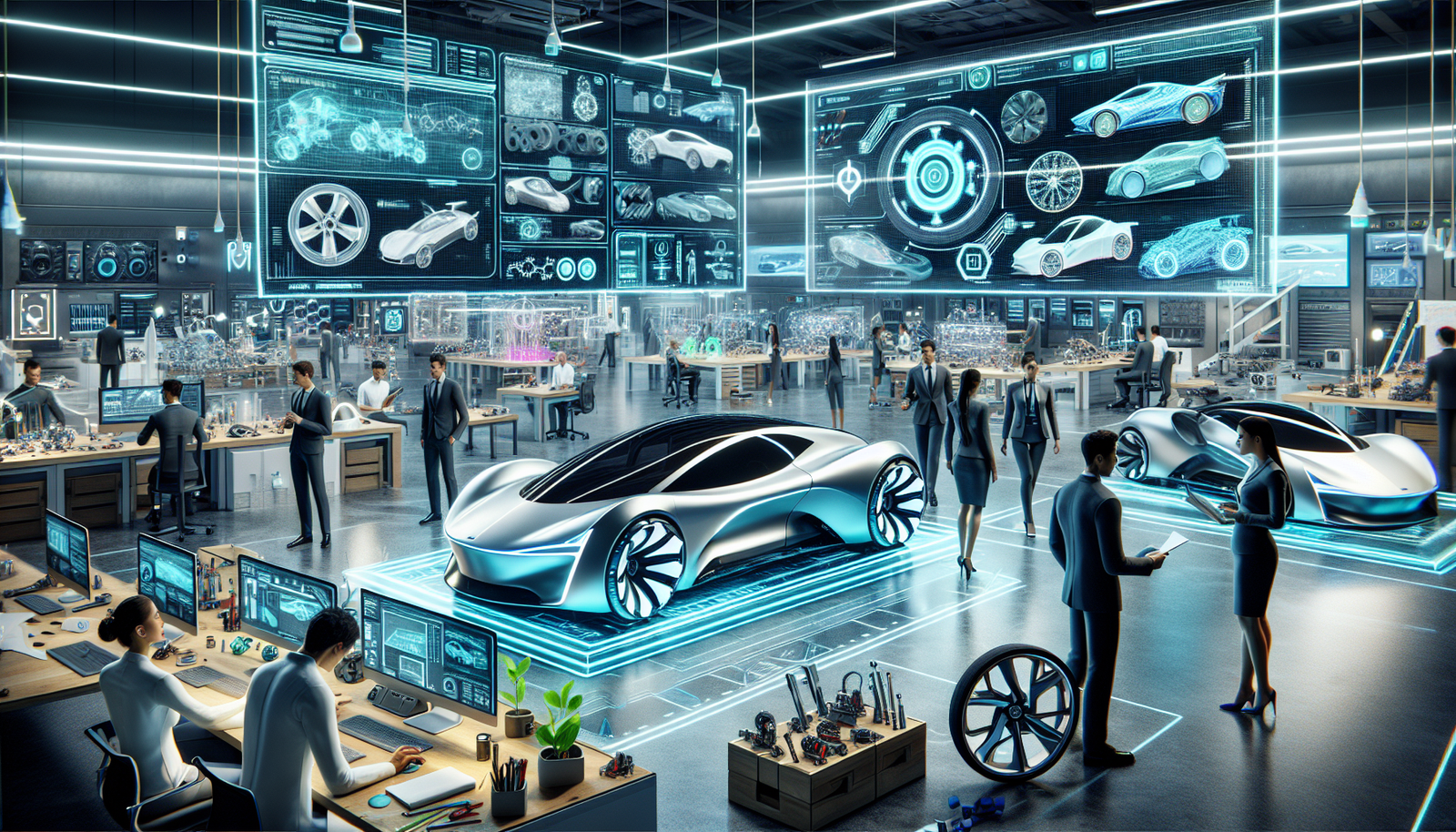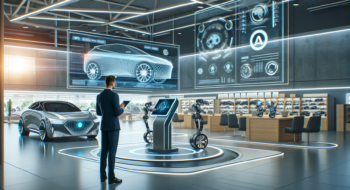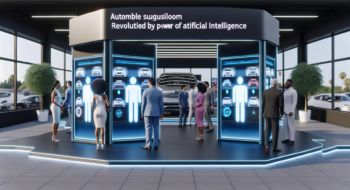The automotive industry is undergoing a transformative evolution, driven by technological advancements and shifting consumer demands. As we look at current trends, it’s clear that innovations such as electric vehicles, autonomous driving, and smart manufacturing are reshaping the landscape. These developments not only enhance vehicle performance and sustainability but also aim to improve overall safety and user experience. In this exploration, we will delve into key trends impacting the automotive sector, highlighting how companies are adapting to thrive in a rapidly changing environment.
1. The Rise of Electric Vehicles
The automotive landscape is witnessing an electric surge like never before. Electric vehicles (EVs) are not merely a trend; they are here to stay. The demand for cleaner transportation options is rising, and major auto manufacturers are responding with groundbreaking models. In fact, according to a report from the International Energy Agency, the global electric vehicle market is expected to grow exponentially, with sales poised to surpass 30% of total vehicle sales by 2030. This boom is fueled by cleaner energy mandates and a shift toward reducing carbon footprints.
2. Autonomous Driving Technology
Imagine a world where your car drives itself while you kick back and enjoy a podcast or catch up on emails. Autonomous driving, a dream of the past, is slowly becoming a reality. Innovations in AI and machine learning are paving the way for self-driving vehicles. Companies such as Tesla and Waymo are leading the charge, utilizing advanced sensors and algorithms to navigate complex traffic scenarios. Industry analysts predict that by 2035, approximately 25% of all vehicles sold could be fully autonomous, transforming how we think about transportation and urban planning.
3. Smart Manufacturing and Industry 4.0
The automotive manufacturing process is undergoing its own makeover, courtesy of the fourth industrial revolution. Smart manufacturing, powered by IoT, big data, and AI, is enhancing productivity and reducing costs. For example, manufacturers are using predictive analytics to foresee equipment malfunctions and optimize production schedules. Automakers, by embracing this shift, can adapt operations for efficiency while reducing waste. Companies like Ford are already implementing these technologies to create more agile and resilient production environments, driving down costs and enhancing quality.
4. Connectivity and the Internet of Things (IoT)
Modern vehicles are not just modes of transport; they have morphed into connected devices on wheels. The integration of IoT technology allows for real-time data sharing between cars, infrastructure, and users. Features such as remote diagnostics, navigation assistance, and infotainment systems enhance the driving experience while making it safer. As more vehicles are equipped with connectivity capabilities, the automotive industry will see significant improvements in traffic management and accident prevention.
5. Sustainability and Eco-Friendly Practices
Sustainability is taking center stage in the automotive sector. Manufacturers are focusing on eco-friendly practices throughout their supply chains. From sourcing sustainable materials to using green production methods, automakers are committing to reduce their environmental impact. Many are setting ambitious targets for reducing greenhouse gas emissions by incorporating recycled materials into vehicle production, exemplifying a determined push toward a more sustainable future. This trend not only resonates with consumers but also positions brands as responsible stewards of the planet.
6. Enhanced User Experience through Customization
Today’s consumers are craving personalized experiences, and the automotive industry is answering the call. From customizable interiors to tailored driving modes, manufacturers are offering more options than ever before. Digital interfaces allow drivers to select features ranging from ambient lighting colors to software-driven driving preferences, making each car distinctly theirs. As the competition intensifies, brands that prioritize user experience and customization will hold a significant edge in the market.
7. Rising Focus on Safety Features
As technology advances, so does the emphasis on safety. Enhanced safety features, from automated emergency braking to lane-keeping assistance, are quickly becoming standard in many vehicles. The push for a safer driving environment is not just a trend; it’s a necessity. According to the Insurance Institute for Highway Safety, advancements in safety technology have contributed significantly to the reduction of road fatalities. As consumers become increasingly aware of these advancements, strong safety ratings can sway purchasing decisions, driving automakers to innovate further in this area.
8. Shift Towards Mobility as a Service (MaaS)
The traditional notion of vehicle ownership is evolving, especially in urban areas. With the rise of ridesharing and subscription services, more individuals are opting for Mobility as a Service (MaaS), which allows for on-demand transportation options. This shift presents new business models for automotive companies, pushing them toward more service-oriented strategies. Automakers like BMW and Mercedes-Benz have already launched their own subscription services, recognizing the need for flexible mobility solutions that cater to a diverse consumer base.
9. Integration of Artificial Intelligence
Artificial Intelligence is transforming the automotive industry at multiple levels. From chatbots offering customer support to advanced driver-assistance systems (ADAS), AI enhances both manufacturing processes and consumer experiences. Machine learning algorithms analyze vast amounts of data to optimize routes, provide predictive maintenance notifications, and assist in vehicle design. As the technology continues to advance, AI’s role in the automotive sector will only deepen, improving efficiencies and ensuring an unparalleled driving experience.
10. The Electrification of Commercial Fleets
Last but not least, commercial fleets are making the switch to electrification. Companies recognize the long-term cost savings and environmental benefits of electric commercial vehicles. Delivery giants like Amazon are investing heavily in electric vans and trucks to cut down operational costs and fulfill sustainability goals. With advancements in battery technology and charging infrastructure, the electrification of commercial fleets is not just a trend—it’s a necessary evolution for businesses to remain competitive in a rapidly changing market.
As we look toward the future, it’s clear that the automotive industry is on an exciting trajectory. Whether through integrating innovative technology or focusing on environmental sustainability, the trends shaping this sector are both diverse and promising. Manufacturers need to embrace these changes, adapting their strategies to meet the evolving demands of consumers. Those who do will not just survive—they will thrive. For more insights into automotive innovations transforming our roads, check out Neyrotex.com.







